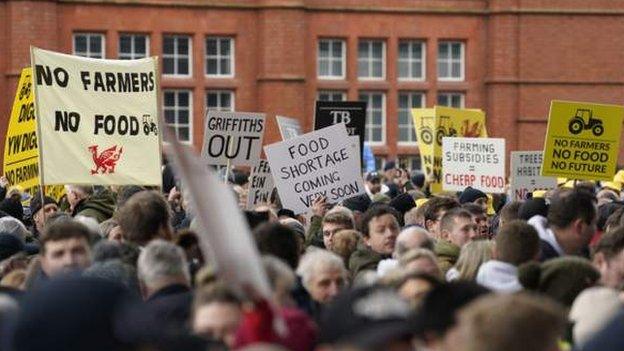Farming future is high-tech and diverse
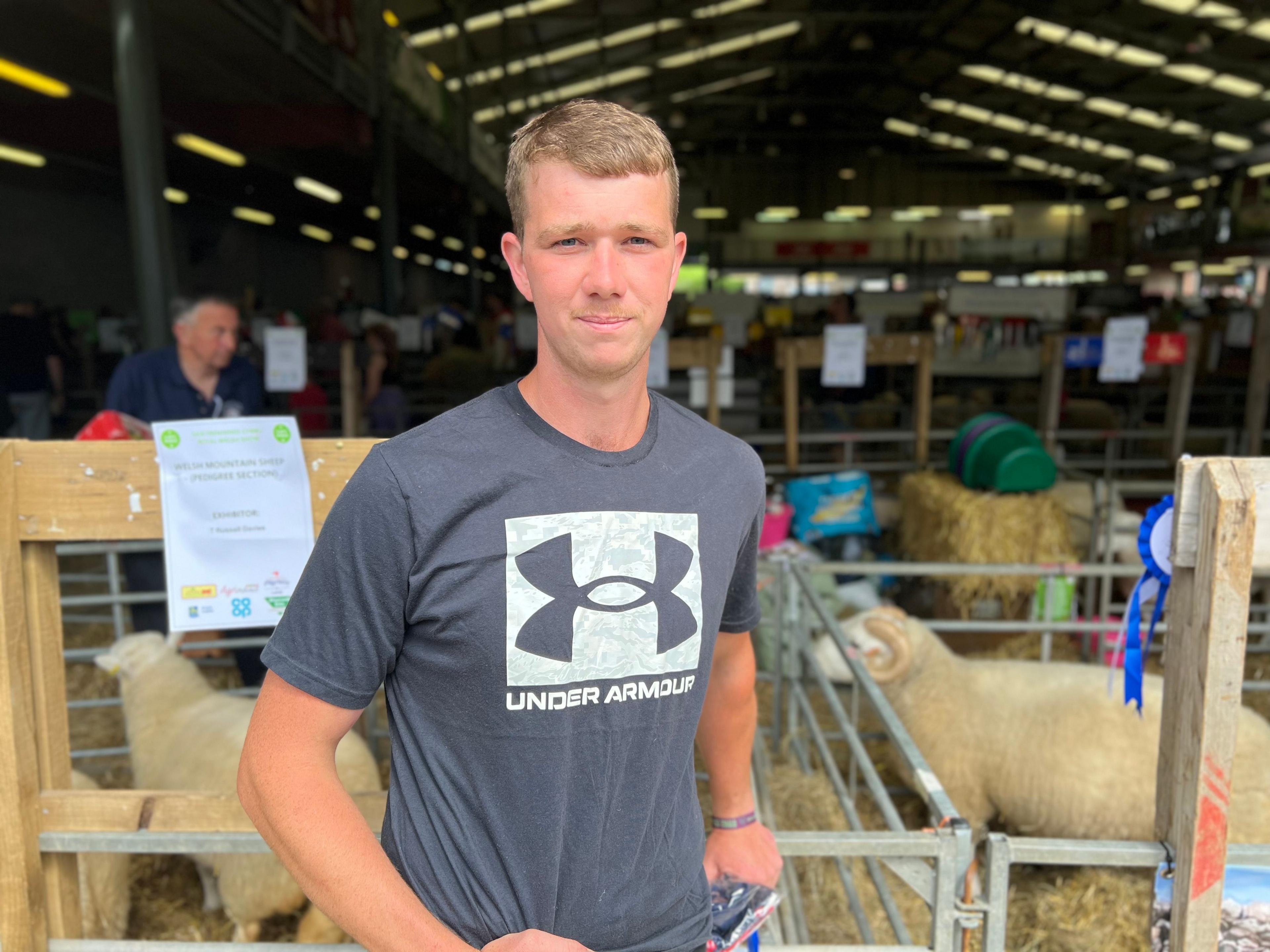
Dom Hampson-Smith is a young sheep farmer based in Usk, Monnmouthshire
- Published
The Welsh farm ten years from now probably has electric tractors ploughing drone monitored fields with a holiday let and solar array helping pay the bills, a young farmer has said.
Dominic Hampson-Smith, 25, from Usk in Monmouthshire, said the next generation will bring a "breath of fresh air" to a sector where the average farmer's age is over 60.
But the high cost of land means nearly insurmountable "barriers" for people trying to get into farming for the first time.
One agricultural entrepreneur at this year's Royal Welsh Show said a tourism side-business is the only way she can continue a livestock farm in her family for generations.
We'll work with anyone for rural life, say farmers
- Published23 July 2024
Thousands gather for 120th Royal Welsh Show
- Published22 July 2024
Eluned Morgan likely to be Wales' first female FM
- Published23 July 2024
"If you could have an electric tractor that does the work of a diesel of course you would change," said Mr Hampson-Smith from the Wales Federation of Young Farmers Clubs (WFYFC).
"We are also seeing the use of automation and GPS for planting and cultivation," he added.
"Machinery is making our lives much more efficient... if you can cover the ground in half the time, you're going to be producing half the emissions."
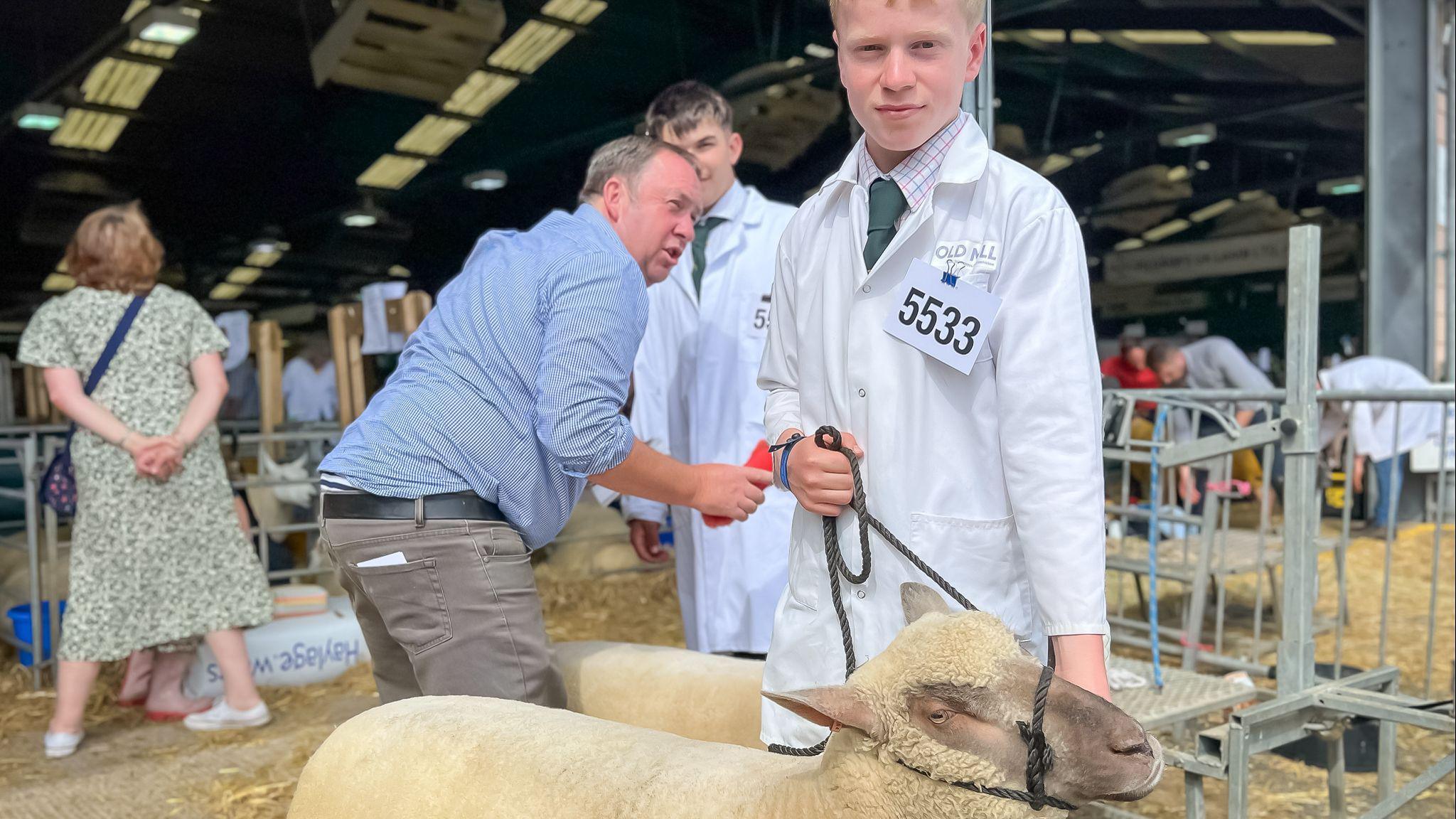
Harry Stamp, 15, from Somerset and his Dorset Dawn entry in this year's Royal Welsh Show
The future farmer will also depend on science and data to survive changing weather and ever tougher margins, he said.
"Things like automated feeders and daily livestock weighing to get the efficiency right."
Despite all the "exciting ideas" young farmers can bring, Mr Hampson-Smith said "getting your foot in the door for people who don't come from an agricultural background like me is extremely difficult".
He grew up in a non-farming family in Cwmbran, Blaenau Gwent and has had to farm on rented ground.
Angharad Thomas, 27, who grew up on her family's sheep and cattle farm near Carmarthen, said farms in her area are selling for more than a million pounds.
"So many young farmers that want to farm but with the prices tags it is a big barrier."
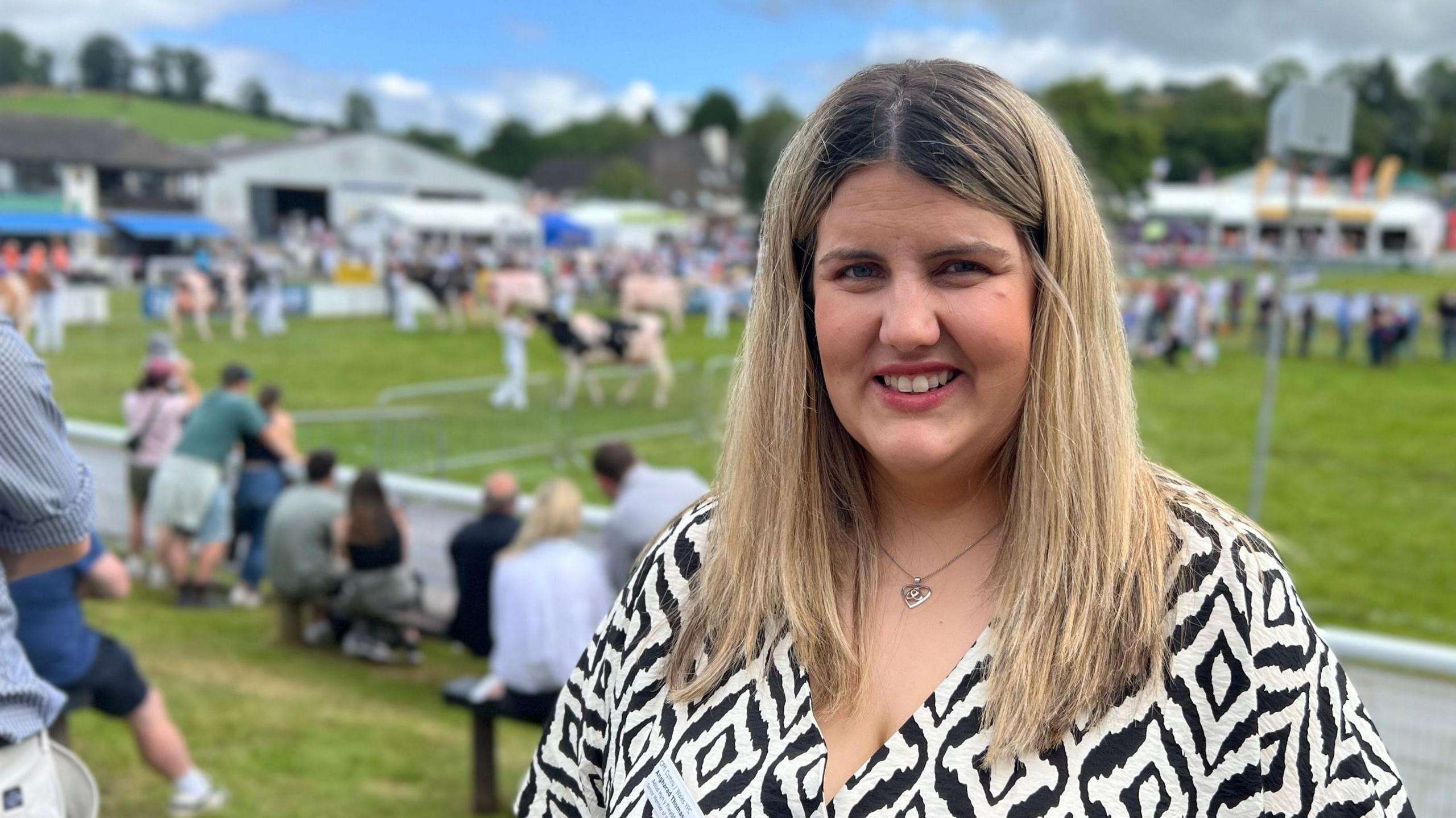
Young farmer Angharad Thomas says the high cost of land is "disheartening" for people hoping to start a farm
She said one hill farm bought recently will now become a tree plantation.
"It's disheartening seeing that it could easily host a family and keep young people in rural Wales.
"Opportunity for people to start farming is becoming a bigger barrier all the time," she added. "It's a bit daunting."
She and the WFYFC say their main opposition to the Welsh government's controversial farming subsidy scheme is that it says little about how to get new people in the industry.
"It could be that good people with new ideas are turned away because there isn't enough support," she said.
For those already in the business, Ms Thomas said finding new ways to make money is crucial.
She has started to raise pigs on her family's farm.
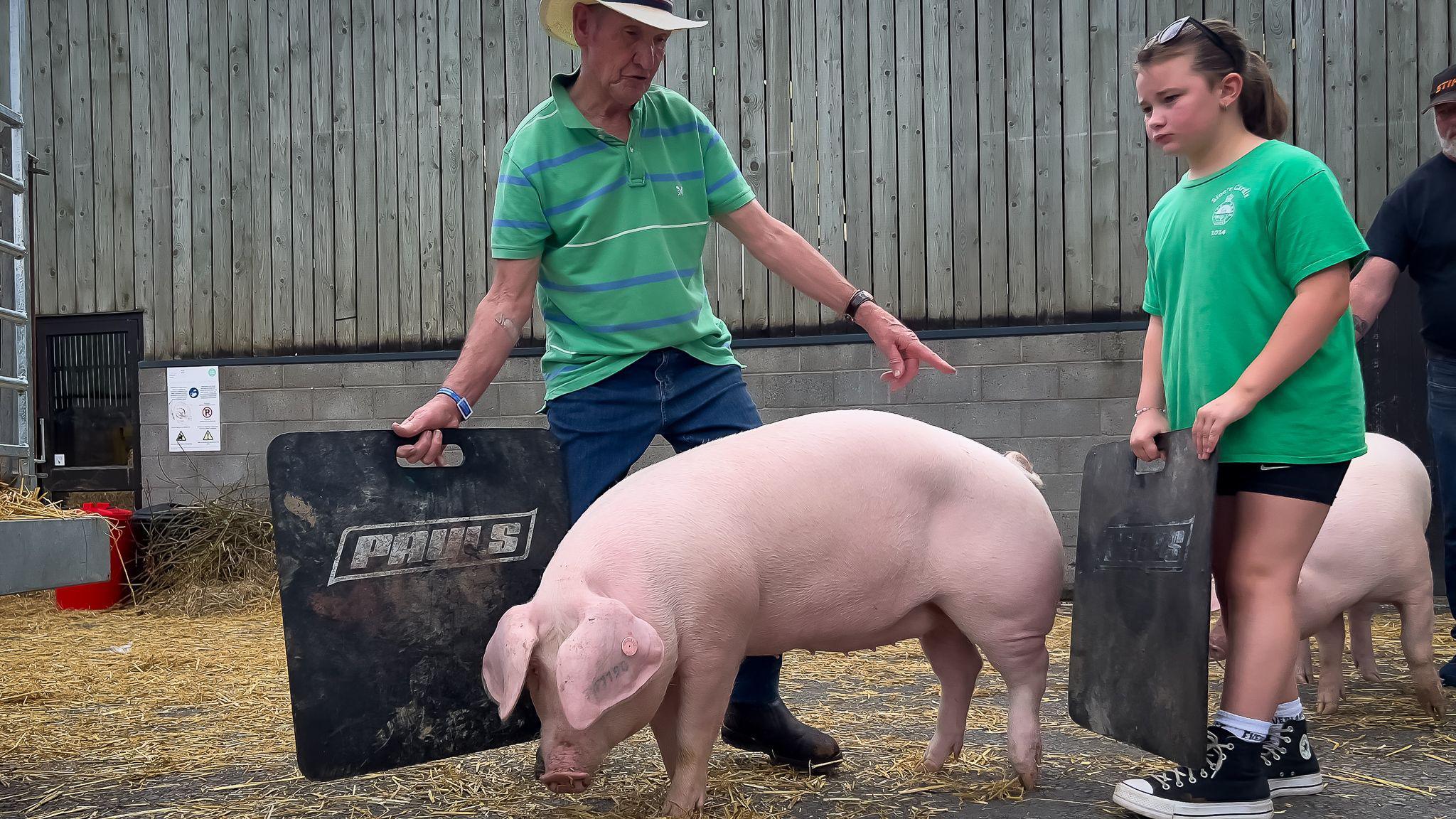
Diversifying farms with new animals such as pigs can help make some more financially viable
"I just thought it's something I can own myself," she said, explaining how she has used social media and word of mouth to develop a meat box business.
"I have my own little income stream and the pleasure when you have returning customers coming back for the meat, knowing they are having high standard meat."
Anna Jones, 35, from Welshpool in Powys, recently took over her family farm with about 500 sheep and 40 cow.
"It's what my dad did. It's what my grandad did," she said.
"I think it would be a very sad day if we got to the point where we weren't a working farm here."
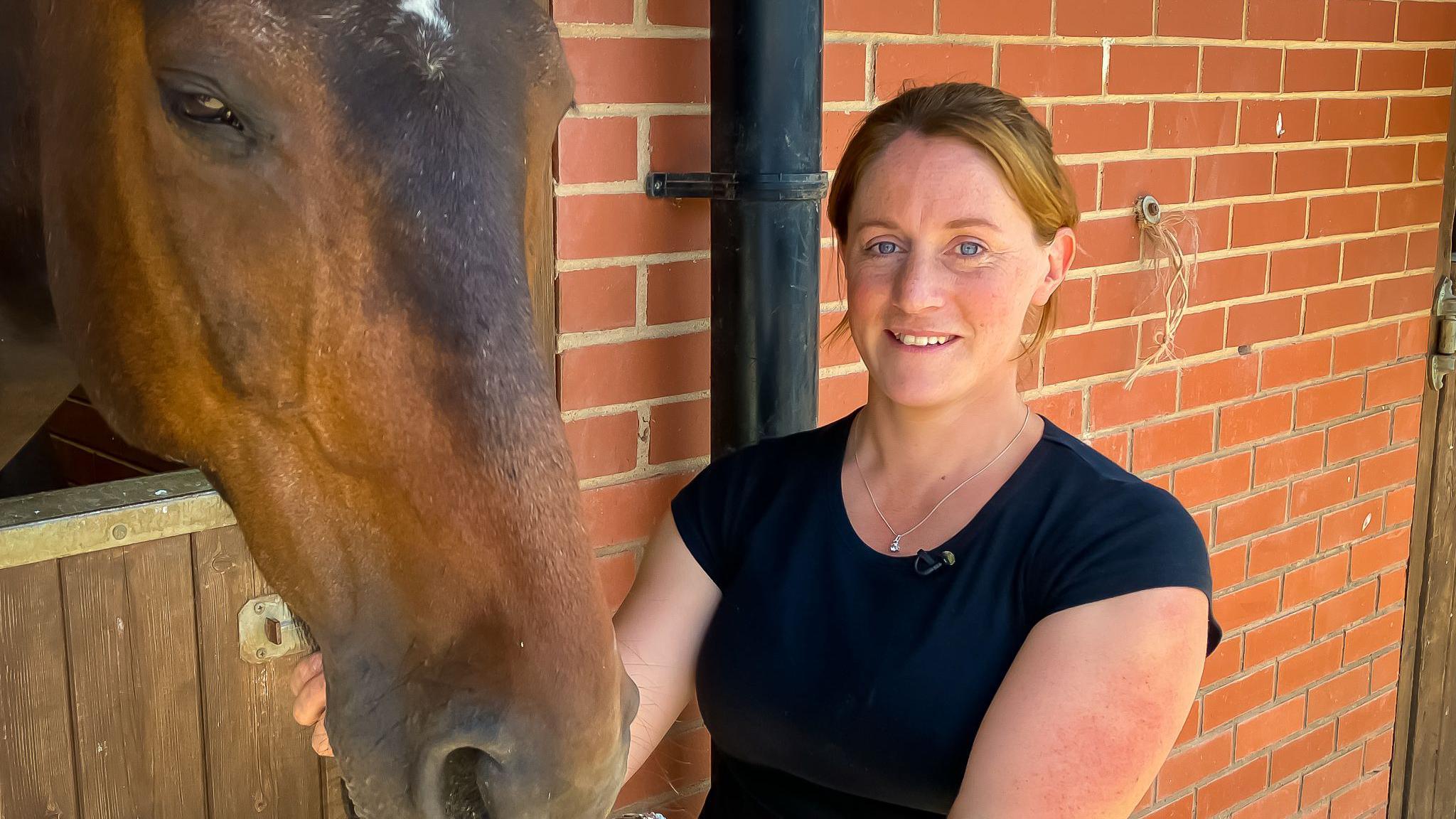
Anna Jones from Welshpool says diversifying into tourism is helping to keep her livestock farm going
"But I can't just do the livestock. It's not financially viable so I have to think of diversification ideas."
She joined the Agri academy, a Welsh government programme meeting at the Royal Welsh for the first time with a goal of inspiring the next generation of rural entrepreneurs.
For Ms Jones it has meant opening a new holiday let that she hopes will keep her family farm going for another generation.
- Published15 November 2023
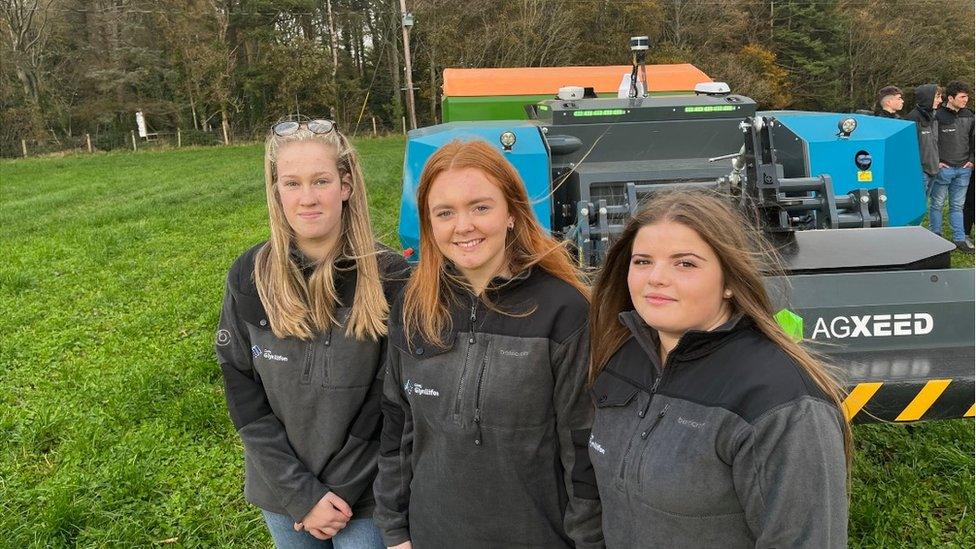
- Published28 February 2024
